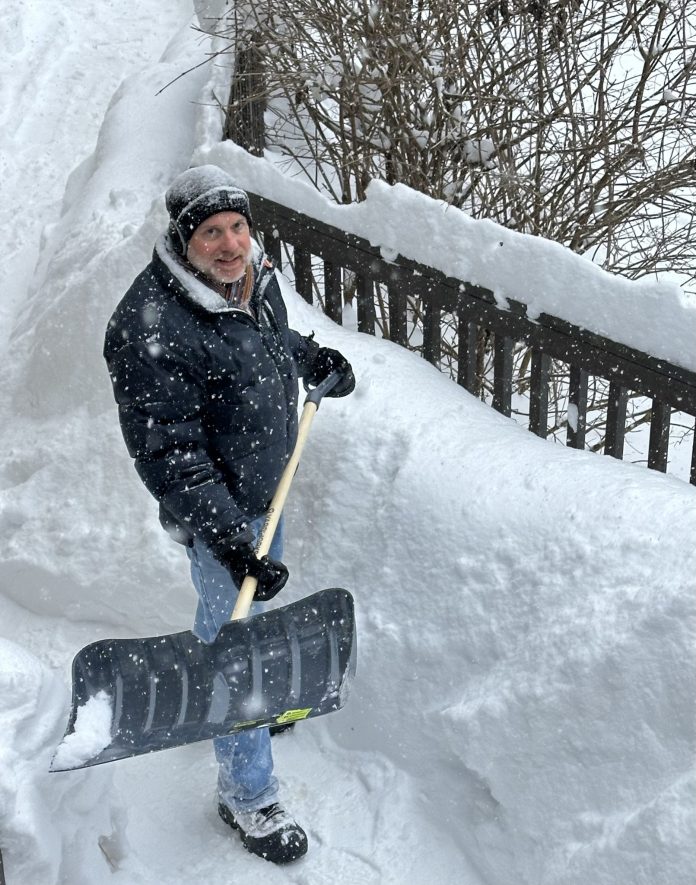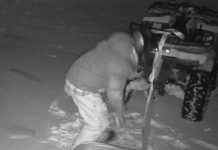By: Pace Cardiology
Heart Safe Snow Shovelling Tips From a PACE Cardiologist
The snow is here again! But before you start digging, there are some chilling health hazards to keep in mind.
“Shovelling snow can be deadly to someone’s heart if it’s not healthy or fit enough to take on that level of exertion,” explains Dr. Brad Dibble, a cardiologist with PACE Cardiology, pictured here shovelling. “It’s a classic story: sudden cold weather exertion can strain the heart enough to trigger a heart attack or cause sudden cardiac death.”
Here’s why: “Shovelling heavy snow will lead to a significant increase in your blood pressure and heart rate. If there’s an unstable plaque in a heart artery, that strain may be enough to lead to plaque rupture and that’s what causes a heart attack. Even if it doesn’t, it can be enough extra work to cause angina, which is chest tightness because the heart isn’t getting as much blood flow as it needs for the extra workload,” explains Dr. Dibble.
While shovelling snow isn’t usually a problem for the healthy and fit, it can be risky for the elderly or for people with known heart disease, high blood pressure, high cholesterol, smokers, or for the habitually sedentary. Snow shovelling is particularly taxing because the majority of the workload is on your arms rather than your legs.
The cardiologist offers the following heart-safe snow shovelling advice: “Talk to your doctor before shovelling heavy snow. I would advise against it if you are older, have had a heart attack, stroke, or previous angioplasty, stents in heart arteries or heart surgery until you’ve been cleared for that level of exertion.”
If you do shovel, “avoid shovelling first thing in the morning because that’s when your blood pressure tends to be at its highest and your blood is most prone to clotting,” he advises. Instead, warm up your muscles before shovelling by taking a quick 20 to 30 minute walk.
Furthermore, “don’t drink coffee, smoke or eat big meals before shovelling or during breaks. Coffee and tobacco are stimulants and will elevate your blood pressure and heart rate. Digesting a meal will divert blood from the heart to the stomach which isn’t good when the heart needs that blood flow for exertion.”
Call 911 if you think you are having a heart attack.








